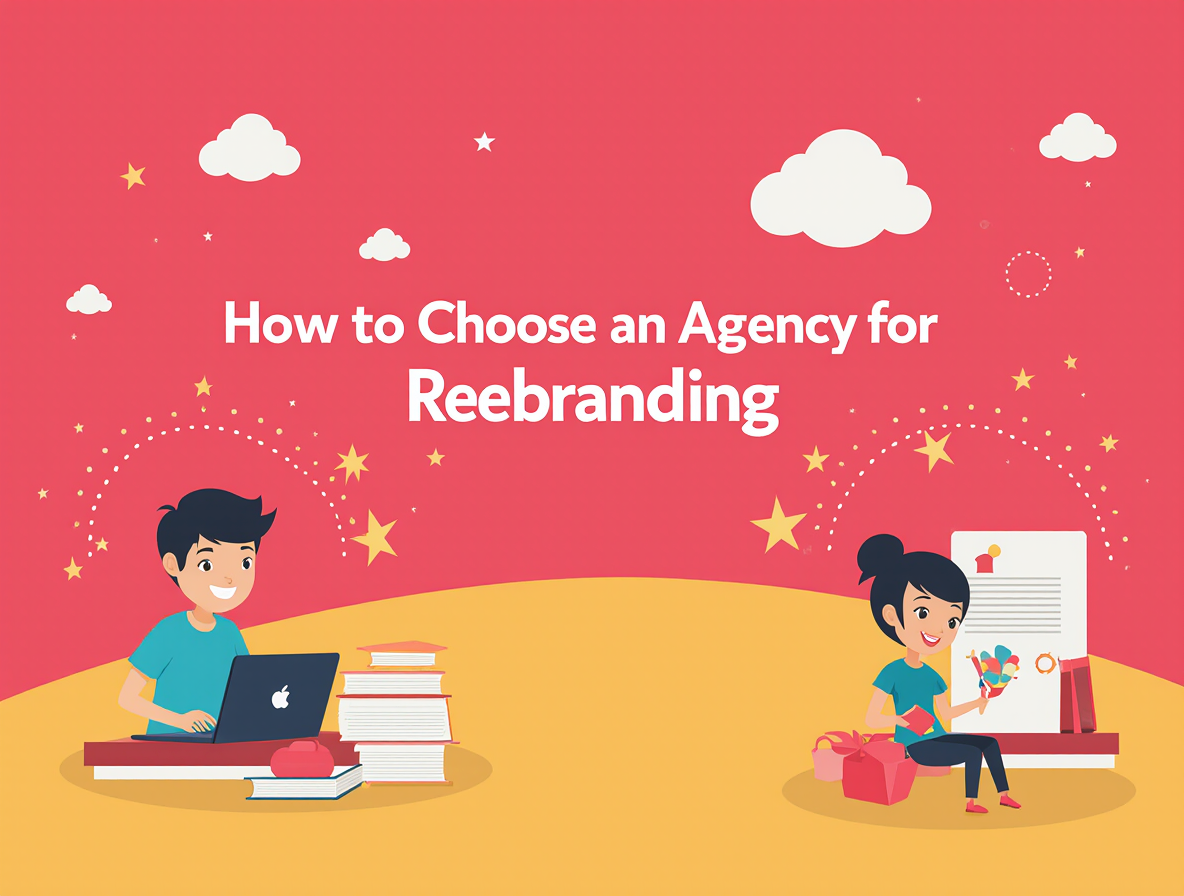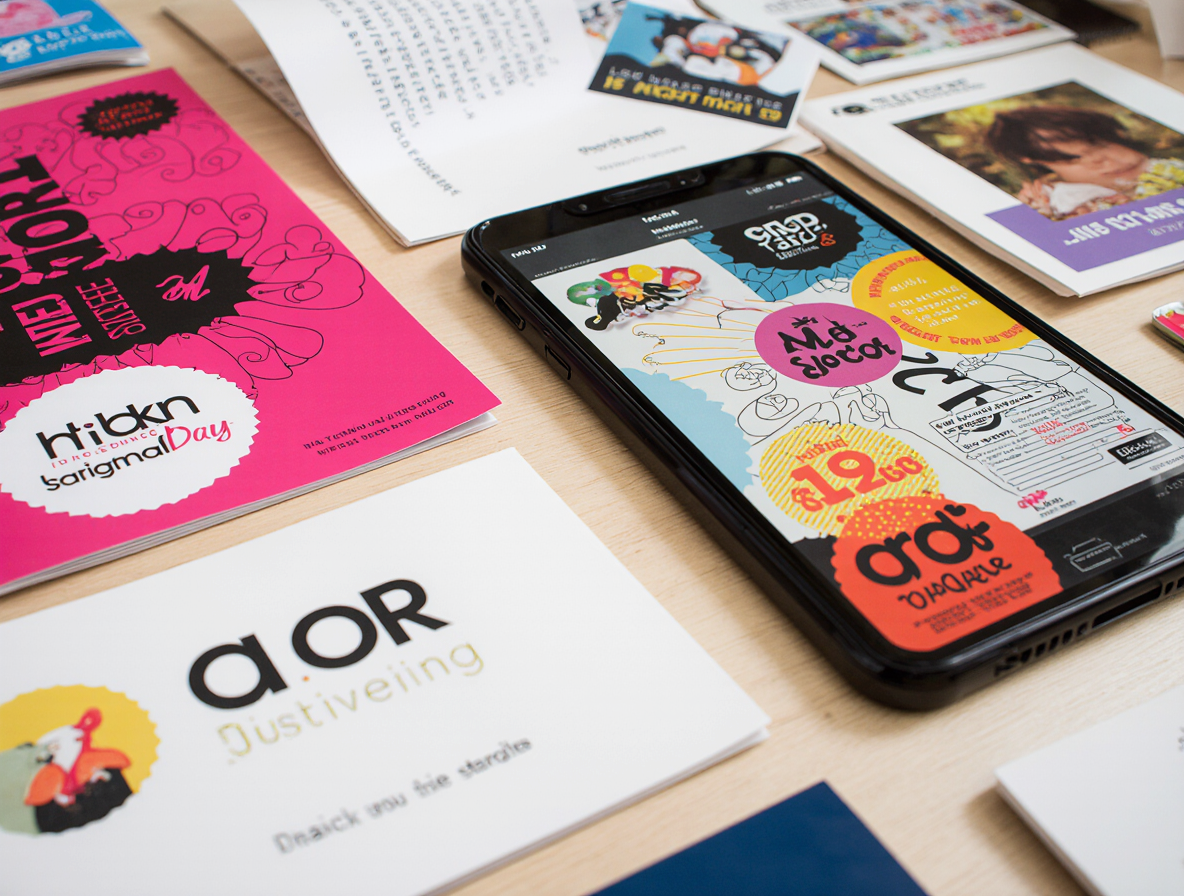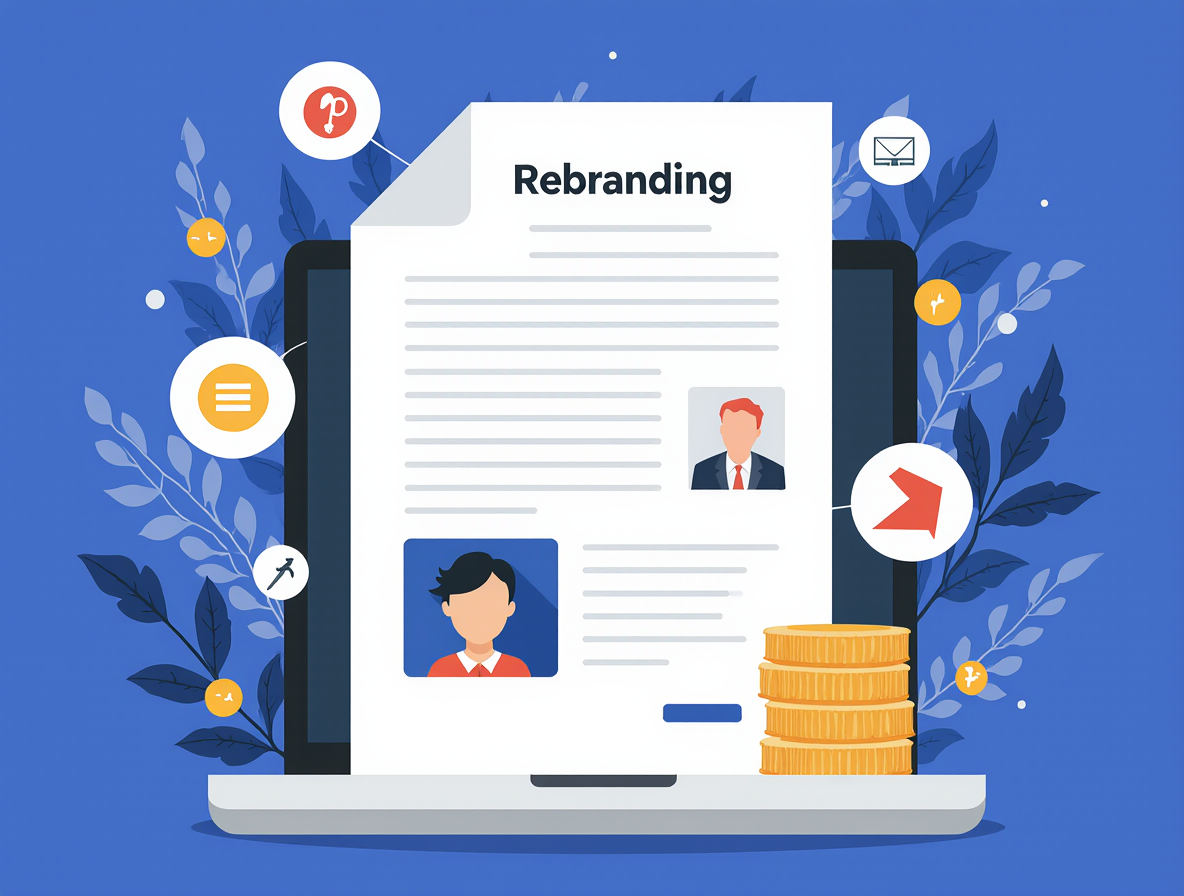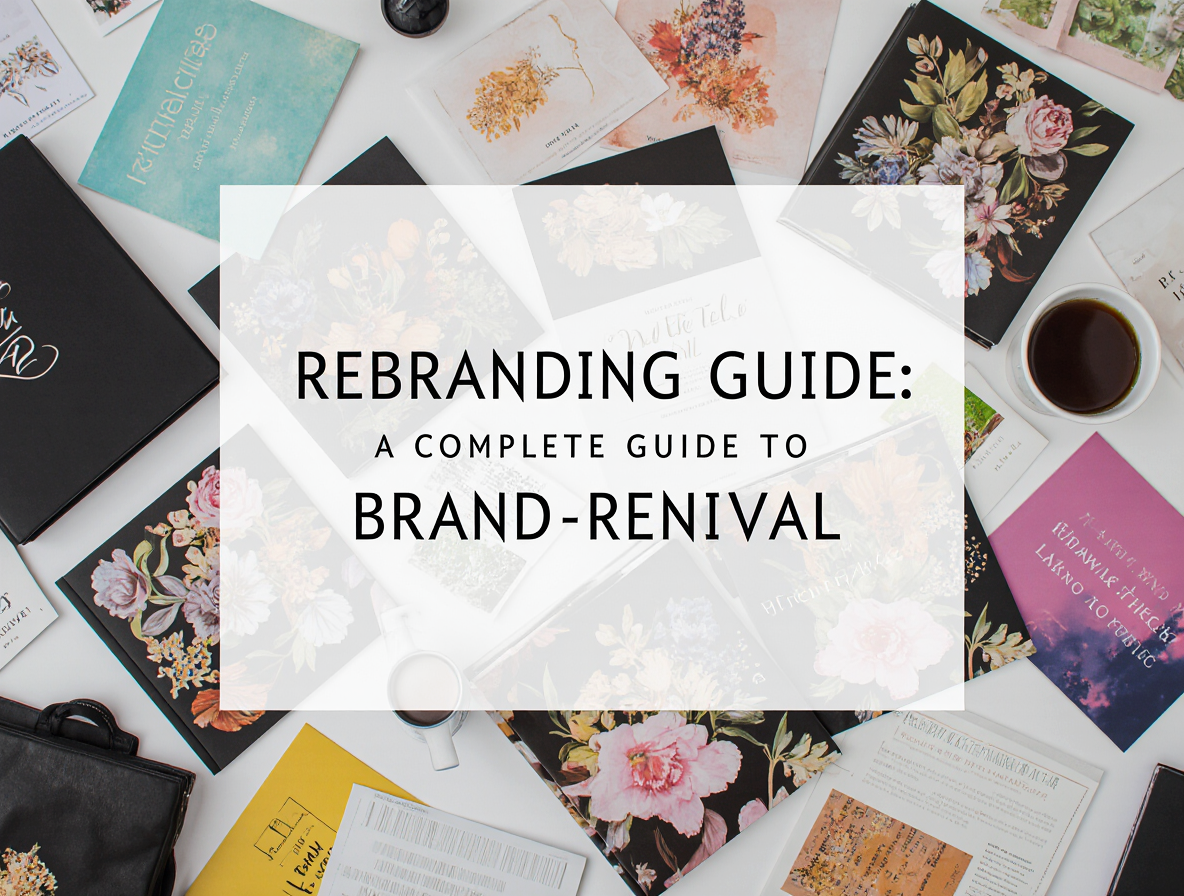Your current brand fails to attract new customers. Competitors consistently win deals you should be closing. Revenue growth has stalled despite increasing marketing spend. This combination of symptoms signals one thing: your brand needs professional reconstruction.
Choosing a branding agency determines whether you gain competitive advantage or waste six months and $100,000 on generic solutions. The stakes are high because rebranding affects every customer touchpoint, from your website to business cards to trade show displays.
What Defines a Successful Rebranding Project?
Successful rebrands solve specific business problems through strategic positioning changes. They increase qualified lead generation by 15-30% within 12 months and improve customer retention rates by closing messaging gaps that confuse your target market.
Rebranding opens up new opportunities for growth, but only with the right support from other business processes. Here are key strategies to help your refreshed brand achieve measurable business results:
- Rebranding Guide: A Complete Guide to Brand Renewal
- Rebranding Strategies: How to Build a Successful Path
- Rebranding vs. Brand Refresh: How to Choose the Right Scale of Change
- How to Rebrand a Small Business: Complete Guide for Entrepreneurs
Three measurable outcomes separate successful rebrands from expensive design exercises: improved market differentiation that reduces price competition, stronger emotional connection with target customers that increases referral rates, and streamlined brand architecture that reduces marketing costs across channels.
Quantifiable Success Metrics:
- Lead quality improvement: 20-40% increase in qualified prospects
- Sales cycle reduction: 15-25% faster deal closure
- Customer acquisition cost decrease: 10-20% efficiency gain
- Brand recognition increase: 25-50% unaided recall improvement
- Employee advocacy growth: 30-60% increase in referral generation
Industry context shapes every rebranding decision. SaaS companies need different messaging strategies than manufacturing firms. Healthcare organizations face compliance requirements that don't apply to retail brands. Selecting branding experts with relevant sector experience helps avoid costly mistakes and regulatory issues.
Rebranding agency selection requires seeing case studies from your exact industry. Generic branding experience doesn't translate to sector-specific challenges like regulatory compliance, technical buyer personas, or industry-specific sales cycles.

Creative Director at Celerart
How to Pick an Agency for Rebranding: Portfolio Analysis
Portfolio analysis reveals strategic thinking capability, not just visual design skills. Strong portfolios explain the business context behind each project, demonstrate clear before-and-after positioning changes, and provide specific performance metrics from completed rebrands.
When it's time to refresh your brand image, it's important to choose a partner who not only understands your concept but is also capable of implementing it effectively. Find out how the Celerart team can help you with the rebranding process, ensuring a high-quality and effective result – https://celerart.com/services/brand-identity/rebranding.
Examine case studies from companies facing similar challenges to yours. A brand identity agency that helped a struggling B2B software company break into enterprise markets brings different expertise than one specializing in consumer product launches. Match their proven experience to your specific situation.
Look for diversity in creative solutions across portfolio projects. Weak agencies apply the same visual formula to every client regardless of industry or target audience. Strong agencies develop unique approaches based on competitive analysis and customer research for each project.
Portfolio Evaluation Checklist:
- Business challenge clearly defined for each case study
- Strategic rationale explained for creative decisions
- Quantified results provided with specific metrics
- Client testimonials include business impact statements
- Visual solutions vary significantly across different industries
Red flags include portfolios that emphasize awards over business results, show minimal strategic explanation, or feature visually similar solutions across unrelated industries. These patterns indicate agencies that prioritize creative expression over client business objectives. How to choose an agency for rebranding depends on finding firms that demonstrate measurable business impact through their work.
Key Criteria for Rebranding Agency Selection
The right questions expose whether agencies truly understand your business or simply want to sell their standard services. Focus on process-oriented questions that require detailed, thoughtful responses rather than marketing pitch answers.

Start with their research methodology. How to choose an agency for rebranding starts with understanding their analytical approach. How do they analyze your competitive landscape? What specific tools do they use for customer research? How do they validate positioning hypotheses before creative development begins? Strong agencies have systematic approaches for these crucial foundation steps.
Explore their collaboration and communication processes. Rebranding projects require constant feedback loops, revision management, and stakeholder alignment. Understand how they handle conflicting opinions, manage project timelines, and maintain creative quality under revision pressure.
Critical Questions for Agency Assessment:
- Research Process: "What specific research methods do you use to analyze our competitive position and validate target audience assumptions?"
- Strategic Development: "Walk me through how you develop positioning strategies and how you test them before creative execution begins."
- Team Allocation: "Which team members will work on our project day-to-day, and what's their experience with companies our size in our industry?"
- Project Management: "How do you handle scope creep, timeline delays, and stakeholder disagreements during the creative process?"
- Performance Measurement: "What metrics do you track to measure rebranding success, and how do you help clients implement tracking systems?"
- Post-Launch Support: "What ongoing support do you provide after launch, and how do you handle necessary adjustments based on market feedback?"
Which Agency Type Matches Your Needs?
Enterprise companies typically need full-service agencies with global implementation capabilities and regulatory expertise. Mid-market companies often get optimal value from specialized boutique agencies that assign senior strategists to every project. When choosing an agency for a rebrand, consider whether specialized consultants or full-service providers better match your internal capabilities and project complexity.
Startups and small businesses benefit from independent consultants or small agencies that provide direct access to senior expertise at affordable rates. However, they sacrifice implementation capabilities and may need additional vendors for website development, photography, or print production.
Match agency size to your project complexity and internal capabilities. Companies with strong internal marketing teams can work effectively with smaller creative specialists. Organizations lacking marketing infrastructure need full-service support that includes implementation and launch management. The best rebranding agency for your company aligns with your specific resources and requirements.
Mid-size companies often make the mistake of hiring enterprise agencies expecting better results. You'll pay premium rates but get assigned junior team members. Choosing a branding agency at boutique level often provides better senior-level attention for similar project scopes.

Creative Director at Celerart
3 Critical Rebranding Mistakes That Cost Businesses
Mistake 1: Choosing Based on Lowest Price
Business owners often select the cheapest agency proposal, treating rebranding as a commodity purchase. This decision seems financially prudent, especially when comparing $25,000 versus $75,000 proposals for seemingly similar deliverables. When choosing rebranding firm partners, low-cost options typically cut corners on research, use junior designers, and rely on template-based solutions instead of custom strategy development.
The price of this mistake extends far beyond immediate cost savings: generic branding fails to differentiate your company, customers can't distinguish you from competitors, and you'll need to rebrand again within 24 months. The total cost of cheap rebranding often exceeds premium agency fees by 200-300%.
Mistake 2: Skipping Competitive Differentiation Analysis
Companies frequently rebrand based on internal preferences rather than competitive market analysis. Leadership teams assume they understand their competitive landscape and make creative decisions based on personal taste or industry conventions. Without systematic competitive analysis, new brands often look similar to established market players, making customer choice difficult and price competition inevitable.
This mistake eliminates the primary benefit of rebranding: market differentiation. You invest heavily in professional design that fails to create distinctive positioning, leaving your sales team fighting commodity battles against better-known competitors.
Mistake 3: Ignoring Internal Team Preparation
Management teams focus entirely on external brand development while neglecting internal team training and adoption processes. They assume employees will automatically understand and implement new brand guidelines once creative work is complete. Without proper internal preparation, sales teams use old messaging, customer service representatives can't explain brand changes, and marketing materials remain inconsistent across different departments.
This internal confusion undermines external brand launch efforts and creates mixed messages that confuse potential customers about your company's positioning and capabilities. An agency for brand makeover projects should include internal adoption planning in their service offering.

The rebranding process requires a careful approach and strategy, and it is important to find an agency that shares your vision and has experience in creating strong brands. Check out Celerart's rebranding services and find out how we can help your brand reach new heights – https://celerart.com/services/brand-identity/rebranding.
Choosing the Branding Agency: Making Your Final Selection Decision
Agency selection ultimately depends on three critical criteria: strategic alignment with your business objectives, demonstrated creative capability in your industry sector, and collaborative chemistry that supports productive long-term partnership relationships.
- Request comprehensive proposals that detail research methodologies, creative processes, project timelines, team assignments, and complete budget breakdowns including all potential additional costs. Choose the branding agency based on value delivered at each project phase rather than just final cost totals.
- Conduct reference calls with recent clients who faced similar business challenges or market conditions. Ask specific questions about communication quality, timeline adherence, revision management, and post-launch support satisfaction levels.
- Trust collaborative instincts about partnership potential. Rebranding requires months of intensive collaboration, frequent communication under pressure, and creative decision-making that affects your company's market position for years. Choose agencies that energize your team rather than ones that feel like necessary vendor relationships.
The right agency becomes your strategic partner in building a stronger competitive market position. They bring objective perspective, creative expertise, and systematic processes that internal teams typically lack. Most importantly, they deliver measurable results that justify investment through improved lead generation, customer retention, and revenue growth.
Your brand represents everything your company stands for in competitive markets. Choose an agency that understands this responsibility and possesses proven capabilities to deliver transformational business results. The agency decision you make today shapes customer perceptions and purchasing decisions for the next 5-7 years.




















